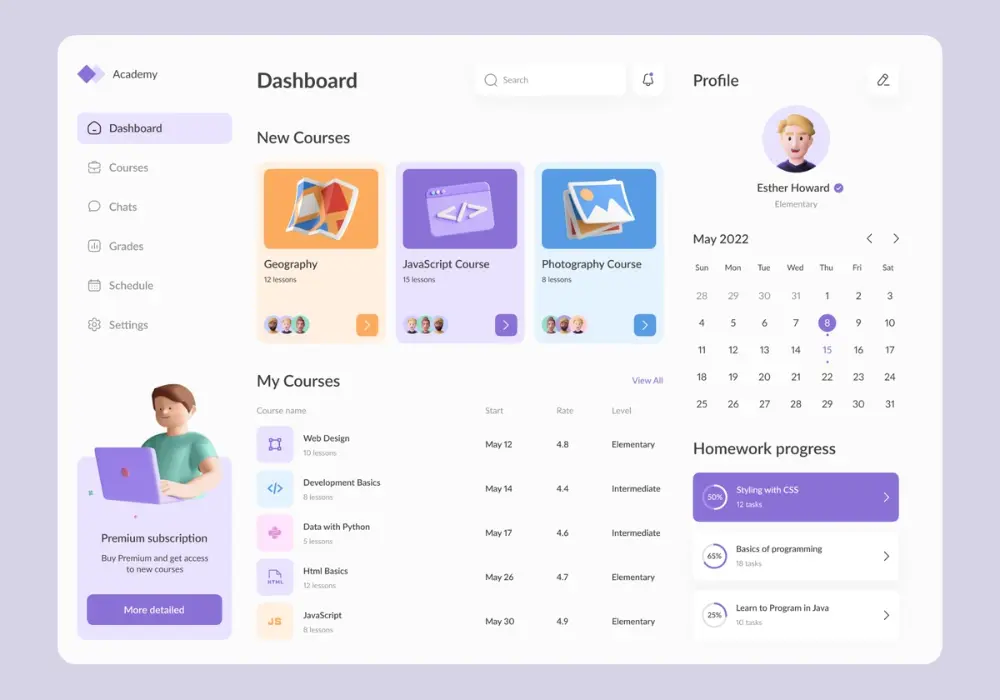Simplify Education With a Leading Understanding Administration System
In the ever-evolving landscape of education, the fostering of a leading Learning Administration System (LMS) presents a critical chance to streamline processes and improve both teaching and learning experiences. By providing and automating administrative jobs customized learning paths, an efficient LMS not just facilitates much better interaction yet also promotes a setting for partnership and inclusivity (Canvas Singapore). Nonetheless, the integration of such a system increases essential concerns regarding its execution and the level of its impact on trainee results. What approaches should institutions consider to make best use of these advantages?
Advantages of a Discovering Management System
A Learning Monitoring System (LMS) uses many advantages that can dramatically boost the academic experience for both teachers and learners. Primarily, an LMS facilitates streamlined training course administration, allowing trainers to manage training course products, track learner progress, and assess efficiency efficiently. This automation minimizes the management worry on teachers, enabling them to focus more on mentor and student interaction.
Additionally, LMS systems support individualized knowing courses, accommodating varied knowing designs and paces. This adaptability fosters a much more comprehensive environment, making it possible for learners to gain access to sources that best fit their demands. Additionally, the access of an LMS allows trainees to involve with course material anytime and anywhere, advertising self-directed understanding and accommodating different timetables.
An additional notable benefit is the improved partnership possibilities an LMS gives. Discussion forums, group projects, and peer evaluations motivate communication amongst students, boosting their understanding via shared viewpoints. Moreover, the data analytics features of an LMS enable teachers to get understandings right into student involvement and efficiency, notifying educational approaches and treatments.
Key Functions to Seek

Next, robust coverage and analytics abilities offer valuable understandings right into learner progression and involvement, enabling educators to make data-driven choices. Combination with other devices, such as content authoring software program and communication systems, is also vital for improving functionality and streamlining process.
Scalability is another essential function, ensuring that the LMS can expand alongside the establishment's requirements, suiting a boosting number of individuals and web content. In addition, mobile compatibility is vital in today's digital landscape, making it possible for learners to gain access to educational materials on numerous gadgets.
Last but not least, strong security actions should remain in location to shield delicate information and maintain compliance with instructional policies. By focusing on these key functions, companies can select an LMS that supports reliable teaching and discovering end results, ultimately improving the instructional experience for all stakeholders involved.

Enhancing Pupil Engagement
Pupil engagement read the full info here is an essential element in the success of any kind of academic program, as it straight influences discovering outcomes and retention rates. A durable Learning Monitoring System (LMS) can play a pivotal function in boosting student interaction through different cutting-edge features.

Furthermore, tailored knowing courses allow trainees to proceed at their own rate, catering to private understanding styles and choices. This flexibility not only promotes a feeling of ownership over their discovering trip but additionally maintains students invested and encouraged.
In addition, real-time feedback systems make it possible for educators to keep track of pupil efficiency and offer prompt assistance, more enhancing the discovering experience.
Application Approaches for Institutions
Successful application of an Understanding Management System (LMS) requires organizations to embrace a critical strategy that aligns technology with academic goals. To accomplish this, organizations must start by performing a comprehensive requirements evaluation to determine certain needs, making certain that the LMS will effectively address challenges faced in training and knowing.
Next, engaging stakeholders-- faculty, administrators, and students-- is crucial for fostering a society of cooperation navigate here and assistance. Educating sessions must be organized to gear up users with the necessary abilities to utilize the LMS successfully. Furthermore, organizations should allocate enough sources, including time and budget, to facilitate a smooth change and continuous maintenance.
Furthermore, developing a phased rollout strategy can help mitigate possible interruptions. Institutions can begin with pilot programs to evaluate functionality and collect comments before major application. Continuous analysis and adaptation of the LMS based on individual experience will better improve its effectiveness.
Last but not least, it is important to communicate a clear vision of just how the LMS supports instructional methods, thereby motivating buy-in from all parties included. By following these methods, institutions can make certain a successful LMS execution that ultimately improves the educational experience.
Determining Success and End Results
Determining the success and end results of a Learning Administration System (LMS) is crucial for determining its effect on training and learning. This process includes the collection and evaluation of measurable and qualitative information to evaluate the efficiency of the LMS in accomplishing academic objectives. Trick efficiency indicators (KPIs) such as student engagement rates, program completion prices, and evaluation ratings supply essential understandings right into user interaction and learning outcomes.
Moreover, studies and comments mechanisms can catch the experiences of both teachers and pupils, using useful viewpoints on use, web content significance, and general fulfillment. By triangulating these information sources, organizations can identify strengths and locations for renovation within the LMS structure.
Furthermore, aligning LMS metrics with institutional goals enhances responsibility and supports calculated planning. Eventually, a systematic technique to measuring success and results not just guarantees continual improvement of the LMS yet also promotes a society of data-driven decision-making.
Conclusion
The assimilation of a leading Learning Administration System (LMS) significantly improves instructional experiences by automating administrative tasks and supplying personalized discovering possibilities. By fostering partnership and inclusivity, a reliable LMS not only improves trainee involvement but also drives better discovering end results. Establishments must prioritize the choice and execution of an LMS that straightens with their goals, guaranteeing robust analytics and interactive material are made use of to gauge success and continuously enhance the academic atmosphere.
A Discovering Monitoring System (LMS) supplies numerous advantages that can significantly enhance the educational experience for both teachers and students.Additionally, LMS platforms sustain personalized learning paths, accommodating diverse learning designs and rates.Gauging the success and results of a Discovering Management System (LMS) is important for determining its influence on training and discovering.The assimilation of a leading Understanding Monitoring System (LMS) dramatically boosts academic experiences by automating administrative tasks and providing personalized understanding possibilities. By promoting partnership and inclusivity, an effective LMS not just enhances trainee engagement yet Read More Here additionally drives much better learning end results.